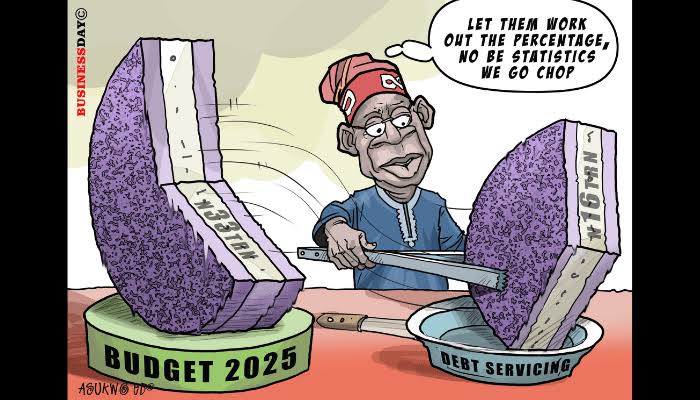Nigeria stands at a financial crossroads, with a planned economic rebasing set to reshape its fiscal outlook and change its Debt-To-GDP Ratio.
For years, rising debt levels have sparked concerns or Nigerians, but fresh calculations could soon paint a different picture.

Now, President Bola Ahmed Tinubu has set the stage for a major fiscal shift.
In a bold move, he has formally requested the National Assembly to raise the 2025 budget from ₦49.7 trillion to ₦54.6 trillion—a significant increase aimed at addressing the country’s growing financial demands.
The recalculation should lower the debt-to-GDP ratio from 56.23% to around 40%, creating the impression of improved debt sustainability.
But where is the balance coming from?
Nigeria’s Rebasement: Lower Debt, Ongoing Revenue Issues
Nigeria’s planned economic rebasing could lower its debt-to-GDP ratio from 56.23% to around 40%, improving debt sustainability, according to Renaissance Capital Africa.
Read Also; Why Your Medicine Is Getting More Expensive In Nigeria
While this shift provides a buffer, Nigeria’s real challenge remains its low revenue generation, with government revenue-to-GDP at just 14%. This is among the weakest globally.
Despite a potential improvement in debt metrics, the country’s total debt stock rose by ₦8.02 trillion to ₦142 trillion in Q3 2024, driven by naira depreciation.
Nigeria’s True Challenge
Meanwhile, debt servicing costs soared by 38% between March and June 2024, reaching ₦3.419 trillion.
Experts warn that Nigeria’s fiscal pressures will persist, as debt service-to revenue surpassed 100% in 2023.
Renaissance Capital Africa notes that high government spending, weak revenue from oil and non-oil sources, and continued deficit financing fuel the country’s rising debt.
While borrowing has driven growth, the report warns that Nigeria must reduce its dependence on commercial and bilateral loans.
To ensure long-term stability, the government must increase revenue, cut recurrent expenditure, and explore equity investment in infrastructure projects.
The report also suggests that Nigeria should pursue debt reprofiling or financial restructuring as short-term measures to ease pressure.
While rebasing may improve fiscal indicators, Nigeria’s true challenge lies in boosting revenue and managing debt sustainably—a task that requires urgent policy action.

